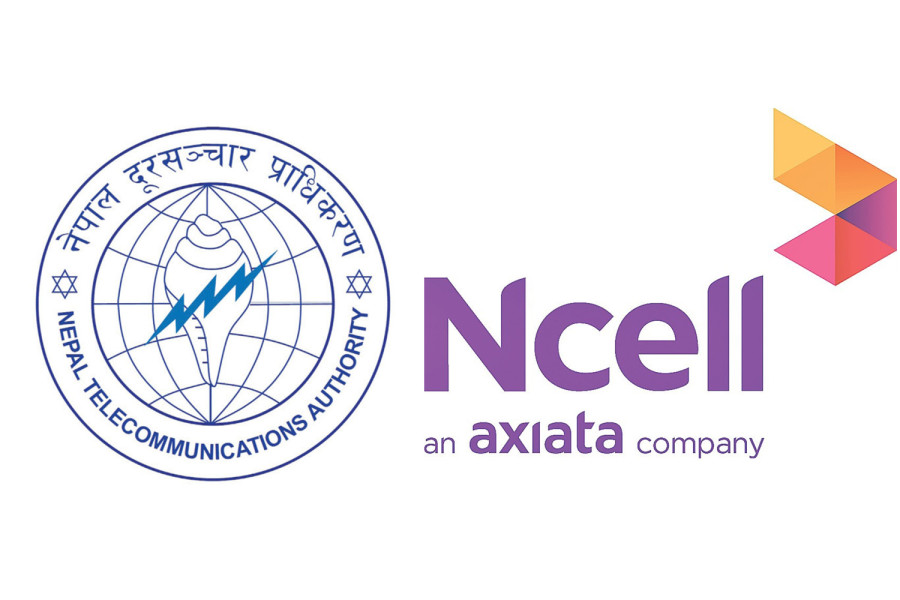National
Telecom regulator instructs Ncell to submit details of Axiata’s deal
This is the third time Nepal Telecom Authority has sought details from the private company, according to NTA chairperson.
Prithivi Man Shrestha
Nepal Telecommunications Authority said it has directed Ncell to submit the details of the Sales and Purchase Agreement on the majority stake of the private sector telecom service provider.
On December 1, Axiata, the Malaysian conglomerate, announced that it was leaving Nepal by selling its entire stake in Ncell, citing the challenging investment climate in the country.
In a statement, the Malaysian company said it had entered into an unconditional sale and purchase agreement (SPA) with Spectrlite UK Limited concerning Reynolds Holding Limited, which owns approximately 80 percent equity stake in the Nepal-based Ncell Axiata Limited.
Spectrlite UK, registered in the United Kingdom in September this year, is owned by Satish Lal Acharya, a person of Nepali origin currently based in Singapore. Sunivera Capital Venture, owned by his wife, Bhavana Singh Shrestha, has another 20 percent stake in Ncell. The deal has courted controversy with the Nepal government forming a high-level panel to probe it.
“We issued a directive to submit the details urgently as per the Telecommunications Act 1997,” Purusottam Khanal, chairperson of NTA, told the Post. “Earlier, we had sent letters twice asking the Ncell to submit the details. We have not yet received a response.”
Khanal said that issuing a directive means Ncell, as a licensee, must comply or face action.
Even though the NTA aimed to give a deadline for submitting details, the directive doesn’t have one. “It is because the Foreign Investment and Technology Transfer Act (FITTA)-2019 allows the companies concerned to submit the details of sale or transfer of ownership effected within Nepal or outside, within 30 days from the transaction date,” he said.
Ncell, however, has already committed to submitting the details soon. In a public notice on December 7, Ncell said it was in the process of collecting documents related to the SPA. It also said the SPA would be submitted to the NTA for regulatory approval in line with clause 15(K) of the Telecommunications Regulation and clause 4 of the NTA Bylaws (Share Sales of Licensed Persons)-2019.
Telecommunications Regulation 1997 requires the licensed entity to get prior NTA approval for the sale or purchase of more than five percent of the paid-up capital.
The sudden announcement of SPA, which would clear the way for Axiata to exit Nepal, has raised questions about Axiata’s intention and Nepal’s investment climate.
In particular, the timing of Axiata’s decision to exit Nepal, its failure to give prior information about its SPA to the Nepali regulator and the relatively lower value of reported transactions raised questions about the Malaysian company’s intentions.
Axiata has clearly hinted that it was divesting its shares from Nepal because the ownership of Ncell would return to the government in 2019 as per the law.
Many people also suspect that the value of transactions was kept low artificially to avoid paying capital gain taxes and reduce other applicable taxes.
Axiata bought 80 percent stake of Ncell in 2016 for $1.365 billion. But, the notice issued on December 7 said it had been valued at $400 million.
In its earlier statement, Ncell did not mention the actual value.
As per Axiata’s statement, key terms of the SPA include a fixed consideration and a conditional consideration. The fixed consideration is $50 million, of which $5 million is payable within six months of the completion of the transaction and the remainder is payable after 48 months.
“The conditional consideration is… contingent upon the future business performance and net distributions declared by Ncell until 2029, and any windfall gains secured by the purchaser [Spectrlite UK] during this period,” Axiata stated.
Khanal said that if the licensee failed to comply with regulatory instructions, the NTA could penalise the service providers as per the Telecommunications Act-1997. As per section 15 of the law, the regulator can issue necessary instructions to the service provider. As per Section 28 of the law, the NTA can take as much action as scrapping the licence if the licensee works against the law and the conditions set in the licence. “If somebody buys the stake of a Nepali telecom service provider and does not submit the details, we may not recognise such a transaction,” said Khanal.




 20.12°C Kathmandu
20.12°C Kathmandu















